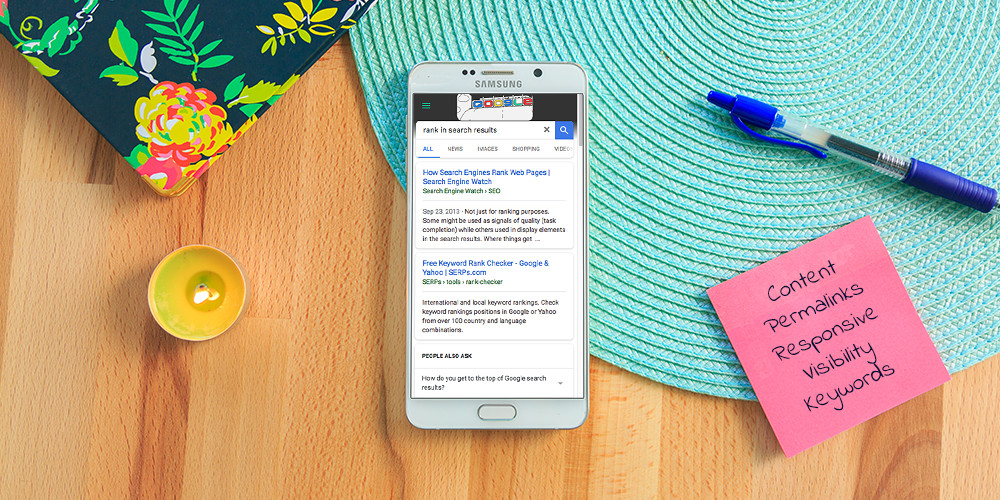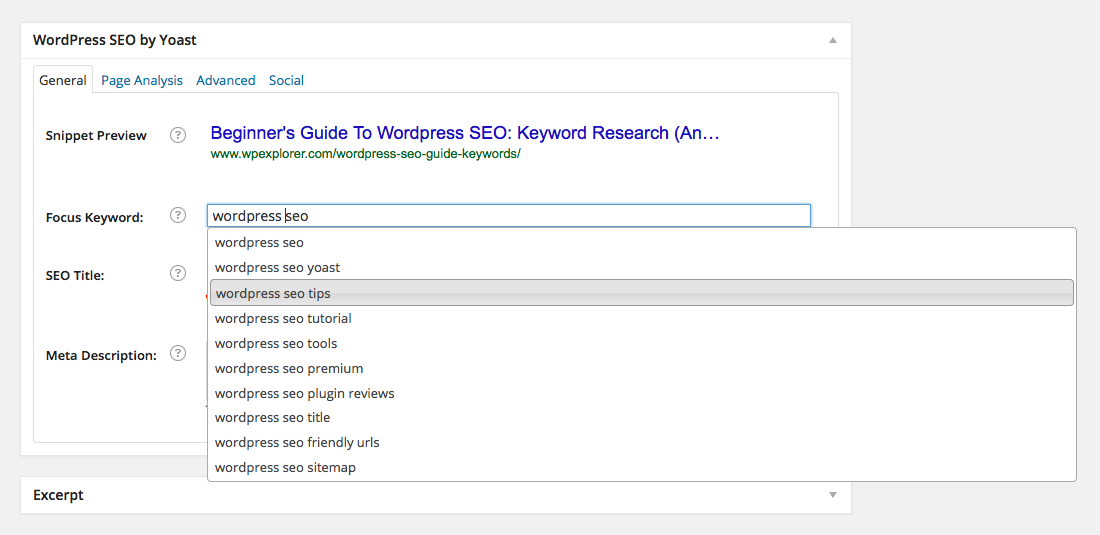5 Reasons Why You’re Not Ranking in Google

You’ve set up your WordPress site and read a lot of “How To” articles about search engine optimization. You feel pretty good about where your website stands, so you officially launch it. Now all you have to do is wait for Google to index your website and see where your website ranks… but why do you still find that your WordPress website isn’t ranking in Google?!
But maybe it’s been a while—maybe a few months, maybe a year or more—and you still can’t get past the third page. What are you doing wrong? There’s good news and bad news. The good news is that your low ranking is likely due to an issue that can be easily amended. And the bad news? You’ll just have to give it some more time to see if the fix helps your ranking.
Here are some of the most common reasons why your WordPress website isn’t ranking in Google.
1 . Your WordPress Site Has Weak Content

For Google, content and links are its two most important ranking factors. So if you don’t have good content, your WordPress site doesn’t have much of a chance to rank. There are a lot of elements that go into making “good” content. To make your content the best it can be, use the following as a checklist:
- Informative – Your content should leave the reader with the sense that they learned something and that their time was not wasted.
- Grammatically correct – Adhere to proper English by staying mindful of issues like typos, fragment sentences, punctuation, and more.
- Lengthy – Content should be a minimum of 400 words, but most well performing written content is 1,000 words or more.
- Freshness – How old is your content? Do you frequently update your blog with new content? Never updating your site with new content is an issue that can ding your rankings. Strive to update something at least once a month,
and preferably weekly.
By providing fresh, quality content on a weekly basis, you won’t have to worry about not ranking for one of Google’s most important factors.
2. You Changed Your Permalinks

Permalink refers to the permanent link to a page on your website or blog. You want these to be descriptive and, as often as possible, include the keyword that page or post is targeting.
If your permalinks have extra bits like “?p=3282949” or if they’re too long, or contain stop words (e.g. “and,” “by,” or “do”) they need to be changed to be more human and machine-readable. However, if you do it the wrong way then Google will lose track of those pages and you’ll lose rank.
If at some point you need to change your permalinks, here’s how you can change your permalinks without sacrificing your ranking.
3. The Site Is Not Mobile Responsive

A little over half of website traffic is generated through mobile phones. Web designers have the challenge of making one website to please multiple browsers on different devices—which is why many make websites “responsive.”
A “responsive” website will adapt to a format that is user-friendly for a particular device. A website that is not user-friendly will get dinged by Google during mobile- based searched queries. Google is all about promoting websites with a great user experience.
To check your website, use Google’s Mobile Friendly Test tool. It will tell you if your website is mobile friendly and alert you to any issues (such as pages partially loading) so you know what to fix. And if you find out that your current WordPress design is not optimal for your mobile readers, consider switching to one of the best business WordPress themes – all of which are fully responsive on most devices.
4. Your Website Is Not Visible to Search Engines

If your WordPress website isn’t ranking in Google and you are just starting out with WordPress, you may be unfamiliar with many of the options to customize your website settings. So it is possible you changed something without realizing how it would affect your search engine optimization.
Log into your WordPress dashboard and navigate to Settings > Reading Settings and scroll down to Site Visibility. The option “Allow search engines to index this site” should be selected.

If it is not selected, select it, and then allow some time for Google to index your site and see if your page ranking improves.
If it is selected, you may just need to wait a bit longer or you could be encountering another issue.
5. It’s Not You, It’s Your Keywords

Keywords are important to optimizing for the search engine and helping your page rank, but if used incorrectly, they can actually do more harm than good. Here are three best practices of which to be mindful:
- Don’t stuff keywords – Keyword stuffing involves filling paragraphs with the keyword(s) you are trying to target. Keyword stuffed content reads poorly and unnatural. You want to use keywords but in a way that is natural to read and elevates your thoughts and points throughout the piece.
- Use long tail keywords – Long tail keywords are three or four (maybe even more) words long and are more specific to what a buyer wants. These keywords are easier to rank for. Plus, customers who use these keywords are likely to be further along in the buying cycle, because they know exactly what they want.
- Don’t try to rank for too competitive of keywords with a weak site – If you are only trying to rank for keywords with a high competition rate, you are likely losing out to other websites. That’s why it’s best to start out targeting keywords with low or medium competitiveness. As you begin to rank for these, you can look into keywords with more competition. Just be sure to do your research first!
And if you want a bit of help with your keyword usage consider using a plugin. A great option is Yoast SEO, which includes a “focus keyword” option. Once you’ve set the keyword you want to focus on you’ll be able to analyze the keyword density, usage in headings, if the keyword is in your url etc. Plus if you upgrade to Yoast SEO Premium you can target up to 5 keywords on a page, making for even easier optimization.
Work Towards a Higher Ranking
Use this information to perform an audit on your website and see if you have been unknowingly sabotaging your website’s ranking. Some may be “easier” or “quicker” fixes than others, but all will help. Remember that for any of them you will need to give Google some time (think a few weeks) to adjust the rankings.
Do you have tips to add? Or a question about one of the reasons we covered as to why your WordPress website isn’t ranking in Google we mentioned? Leave a note in the comments section and get the conversation started.




Hello Chris,
Great post. The mentioned points are absolutely fabulous and useful to tune up my WordPress website. I have already modified my content and more specifically I write unique contents which I believe can work tremendously well for my site. I am working hard to construct my site more mobile responsive.
I tried to preform the steps in tip 4. The steps are go to Dashboard>Settings>Reading Settings. I went to the WordPress dashboard for the web site. There is no Setting button or tab to click. Are these instructions for an old version of WordPress?
These are instructions for current versions of self-hosted WordPress (from WordPress.org). If you log into your website, you should see a “settings” option in the dashboard menu. It should be toward the bottom of your left-hand menu, after appearance, plugins, users and tools.
If by chance you are using the free blogs on WordPress.com I’m not sure if they offer this option, as I haven’t used the .com version in a long time.
Hi Chris,
Great piece of post, on point.
Another thing I would like to add. I have found out that revamping old posts can help too. I updated some old posts which were not getting any search traffic. After a while, they were getting some search traffic.
I never knew there was a mobile-friendly test tool from Google. Thanks for that.
Regards.
To rank a website it is important to avoid these mistakes that cause bad impact on website rank. Therefore it really informative blog to read for us and thanks to you for sharing.
Here mentioned everything is okay for my website. But still my website in not ranking in Google. I don’t know why. Although my site relatively new. Less than three month. So could you please tell should I worry now? Or when should worry about SEO?
I would say that 3 months is still very new on the web – but if you focus building backlinks and promoting your site on social media you can generate a good amount of traffic!